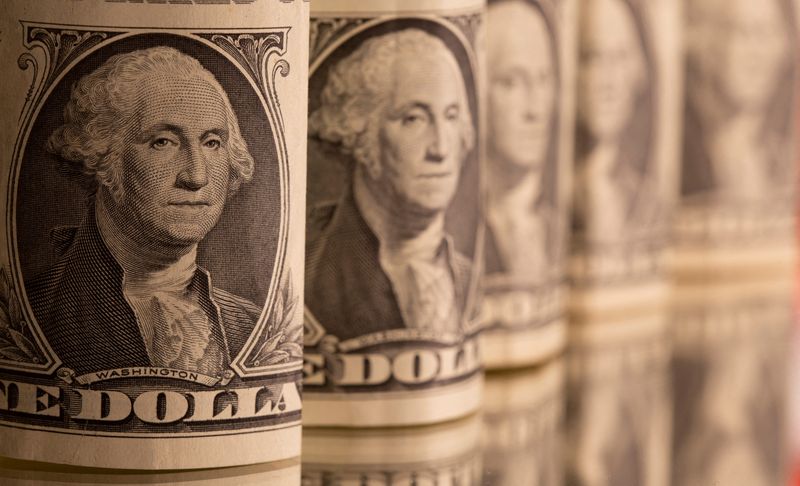
By Karen Brettell
NEW YORK (Reuters) – The U.S. dollar jumped to a one-week high against the Japanese yen on Wednesday after data showed that consumer prices rose more than economists expected in January, raising the likelihood that the Federal Reserve will hold interest rates higher for longer as it battles to bring down price pressures.
U.S. consumer prices increased by the most in nearly 1-1/2 years, with Americans facing higher costs for a range of goods and services.
The headline consumer price index rose by 0.5% in January, while the core index rose by 0.4%. Both were expected to rise by 0.3%.
That puts headline consumer price gains at 3.0% for the year, above expectations for a 2.9% increase, while core prices rose at an annual pace of 3.3%, above expectations for a 3.1% rise.
“The takeaway is no matter what the reason was for the upside surprise, the Fed has been very clear that it won’t cut rates until inflation is close to 2%,” said Adam Button, chief currency analyst at ForexLive in Toronto.
“Whether it’s one-offs due to eggs or the fire in California, the prospect of hitting 2% inflation this year when we start the year with 0.5% is greatly diminished,” Button said.
Interest rate futures traders are now pricing in 27 basis points of cuts by December, down from around 37 basis points before the data, implying a larger chance of only one 25-basis-point cut for the year.
The dollar jumped 1.29% to 154.44 Japanese yen. The Japanese currency is highly sensitive to the interest rate gap between the United States and Japan.
The dollar index was last up 0.02% on the day at 107.95, after earlier reaching a one-week high of 108.52.
The greenback pared gains as traders took profits and evaluated whether January’s inflation report was an anomaly and unlikely to signal a larger trend towards higher prices.
“January is a tricky month because a lot of annual price increases are announced for all sorts of things, and sometimes they are chunky,” Thomas Simons, chief U.S. economist at Jefferies, said in a note. “We are not inclined to expect a repeat next month.”
Fed Chair Jerome Powell on Wednesday repeated that the central bank is in no rush to cut interest rates during a second congressional hearing this week, but said that there has been “great progress” on inflation.
The euro was also boosted after Bundesbank President Joachim Nagel said the European Central Bank should ease policy only gradually and not target a difficult-to-define “neutral” level for interest rates.

